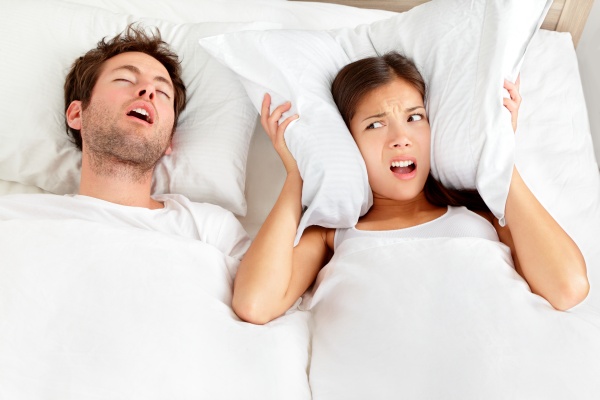How Can a Dentist Treat Sleep Apnea?

Sleep apnea is a situation where breathing stops intermittently during sleep. Two major types of sleep apnea exist: obstructive sleep apnea and central sleep apnea.
Obstructive sleep apnea is the most common type. During the breath stoppage, the soft tissues of the air passages collapse, preventing oxygen from going through the airway to reach the lungs.
In central sleep apnea, the brain stops sending signals required for breathing during sleep. There is no physical inhibition in the air passages, although the body will react as if an intermission happened.
The two types of sleep apnea are detrimental to sleep quality. Patients dealing with untreated sleep apnea will often wake up feeling tired and sluggish. If untreated, sleep apnea can harm mental and physical health in the short or long term.
How a dentist can help
A dentist can prove invaluable in treating obstructive sleep apnea. After a diagnosis, a dental appointment will help enlighten the patient about the available treatments. The dental expert may suggest wearing oral devices, which can help minimize the symptoms of sleep apnea in patients of normal weight.
Mandibular advancement devices, also called dental sleep devices, are the most popular oral device. They are identical to mouthguards and help shift the jaw forward. This position tightens the muscles that collapse during sleep apnea to prevent the fall. Repeated use of this device strengthens the air passages and eventually lessens or eliminates the occurrence of apneas. Some appliances are adjustable, enabling patients to modify where the jaw stays once they are in place.
The dentist will examine the patient’s mouth, teeth and temporomandibular joints to know if they are eligible for mandibular advancement devices. If they qualify, the dentist will make impressions or molds of their teeth, which will be used by specialists to produce oral devices that fit the patient’s mouth perfectly. A perfect fit is necessary because a poorly fitting device can cause jaw injuries. Patients have to wear the device while sleeping to reduce the symptoms of sleep apnea.
That is not all …
Tongue-retaining devices are not so common, but they are suitable for more varied types of oral cavities. These oral devices push the tongue forward and keep it in place. With the tongue attached to the lower jaw, the appliance will prevent the airways from closing.
Good dentists work collaboratively with their patients to ensure the oral device is working and helping their condition. Although the appliance may cause discomfort initially, patients should be able to adjust within days. Continuous supervision and use are vital to achieving the best outcome.
The advantage of oral devices for treating sleep apnea
Oral appliances are generally inexpensive. Although the adjustable options are more expensive, they tend to be more affordable than continuous positive airway pressure (CPAP) machines. They can also have fewer side effects. Since they are personalized for the patient, they can fit perfectly for pain-free use over the night.
Final note
If you suspect that you or a loved one has sleep apnea, you should book an appointment with the dentist. Once your treatment starts, follow your caregiver’s recommendations to get the best results.
Request an appointment here: https://www.palmbeachdentistry.com or call Palm Beach Dentistry at (561) 225-2057 for an appointment in our Delray Beach office.
Check out what others are saying about our services on Yelp: Read our Yelp reviews.
Recent Posts
Are you considering Invisalign®? Read on to learn more about this teeth-straightening option. The path to a beautiful smile, complete with straight teeth, can be life-changing. Using braces to straighten teeth has been the standard practice for decades. However, new orthodontic treatments have emerged as a result of technological advances. One such innovation is Invisalign,…
The journey toward a straighter smile is exciting but comes with a crucial decision: Invisalign® or traditional braces? Both options have advantages, and understanding their differences can help you make an informed decision about your teeth-straightening treatment goals. It is not only about achieving a straighter smile but also about finding the path that best…
Invisalign® has been a game-changer in orthodontic treatments, offering a more discreet and comfortable solution for teeth alignment. While people may wonder if Invisalign is a more effective treatment for teens or adults, there are multiple factors to determine whether a patient is a candidate for Invisalign.One of the significant benefits of Invisalign is its…
Clinical research shows that Invisalign® can correct gaps in your teeth. Even so, the dentist will determine if your case is a fit for this type of treatment. A successful correction can result in a straight and gapless smile. Here are the details about correcting dental gaps with Invisalign.Dental gaps can cause dental health problems.…


